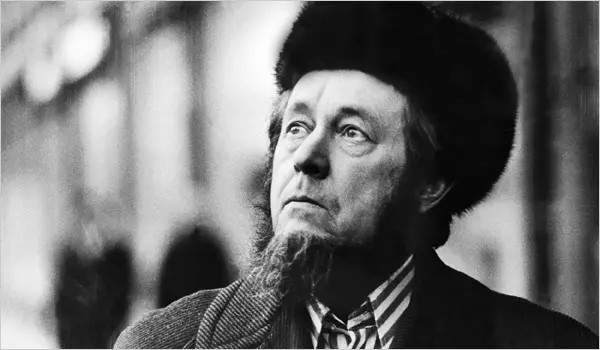On this day in 1970, Russian author and dissident Aleksandr Isayevich Solzhenitsyn was awarded the Nobel Prize for Literature, recognised for his moral courage and his unflinching portrayal of life under Soviet repression. His writing, rooted in personal experience and historical observation, became a powerful indictment of totalitarianism and a testament to the resilience of the human spirit.
Voice of the oppressed
Solzhenitsyn’s work gave voice to millions who suffered in the Soviet Union’s prison camps and under political persecution. His seminal novel One Day in the Life of Ivan Denisovich, published in 1962 with rare official approval during the Khrushchev era, offered readers a stark and intimate depiction of life in the gulag. It broke a long-standing taboo, revealing the brutal realities of Stalin’s labour camps to both Soviet citizens and the wider world.
Exile and defiance
Following his early success, Solzhenitsyn’s relationship with Soviet authorities deteriorated rapidly. His subsequent works, including Cancer Ward and The First Circle, were banned, and he was subjected to constant surveillance and harassment. In 1974, after the clandestine publication of The Gulag Archipelago in the West, Solzhenitsyn was arrested and expelled from the Soviet Union. The monumental three-volume work documented the vast system of forced labour camps and the machinery of state terror, cementing his reputation as one of the most important moral voices of the twentieth century.
Return and legacy
Solzhenitsyn spent two decades in exile, living first in Switzerland and later in the United States, where he continued to write and lecture. Following the collapse of the Soviet Union, he returned to Russia in 1994, greeted with both admiration and controversy. His later writings reflected a complex vision of Russian identity, spirituality, and nationalism — ideas that continue to influence Russian thought and politics.
A lasting impact on literature and conscience
The Nobel Committee’s decision to honour Solzhenitsyn was as much a political statement as a literary recognition. His courage in confronting oppression through art underscored the power of literature as a form of truth-telling. Today, his works remain a cornerstone of twentieth-century literature and a reminder of the enduring struggle for freedom of expression.
Newshub Editorial in Europe – 8 October 2025




Recent Comments